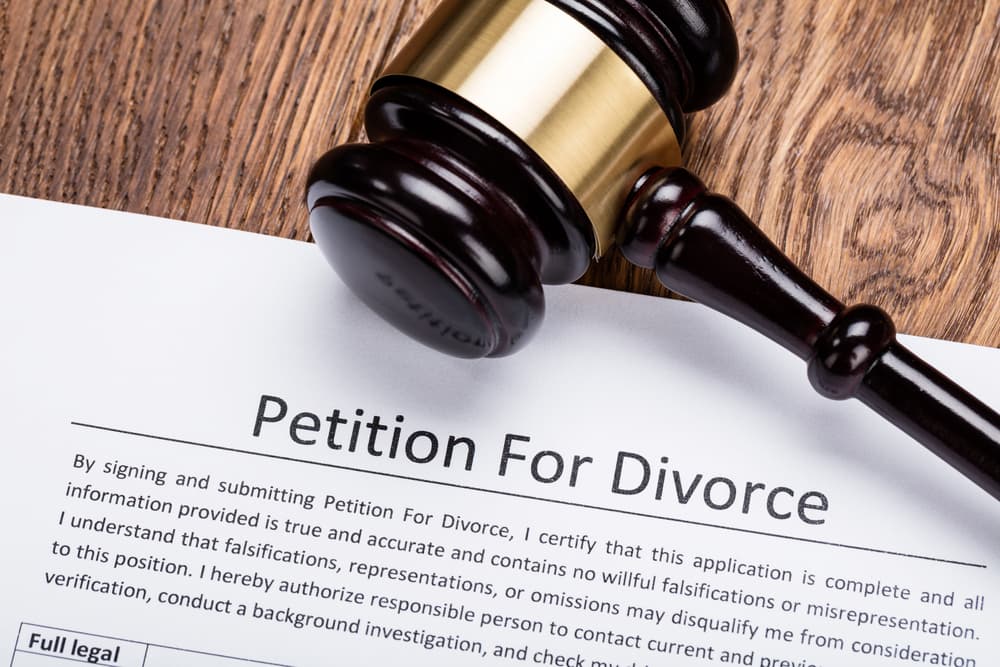Exploring Divorce Laws in Texas Regarding Adultery

In recent years, the Texas divorce rate was 1.5 per 1,000 people, with a large percentage of these divorces being plagued by infidelity.
Cheating is a leading cause of divorce in Texas, and if you were the victim of an unfaithful spouse, you may wonder if and how adultery affects divorce proceedings.
There are two types of divorce in Texas, fault and no-fault. While other states only have no-fault divorce grounds, divorcing spouses may list a fault-based reason for divorce in Texas.
Depending on the type of divorce you decide to pursue, infidelity may affect the outcome.
In fault-based divorces, a judge may consider adultery as a factor in deciding how to divide community property or whether to award alimony.
Judges will only consider adultery as a factor in fault-based divorces if the alleging spouse can provide clear evidence that the other spouse was involved in an extra-marital affair.
Whether you or your spouse engaged in an extra-marital affair, it can be helpful to understand the basics of Texas divorce law regarding adultery and what happens if you are impacted by infidelity.
At Mims Ballew Hollingsworth⏐Family Law, we are prepared to provide you with the legal guidance and support you need so you can spend time focusing on the future and moving toward the next chapter of your life.
Get In Touch With Us
Get In Touch With Us
Legal Grounds for Divorce in Texas
The first question you may have if you are contemplating divorce is whether you are eligible for one and if you must raise and prove one ground for the court to grant the divorce.
In no-fault divorces, neither party is required to prove that the other party has done something wrong; however, although the person filing for divorce does not need to provide a reason, they still have to show why the court should grant the no-fault divorce.
Additionally, a no-fault divorce can still be granted even if your spouse does not agree to the divorce.
Some common grounds for no-fault divorces are:
Insupportability: According to the Texas Family Code, a party can be granted a divorce regardless of fault if a marriage has become insupportable due to discord or conflict of personalities.
In order to qualify under this ground, it must be shown that a marriage is no longer endurable and that the conflict has made it impossible for either party to remain in the marriage.
Living apart: This is another “no-fault” option for divorce, and the court may grant a divorce in favor of either spouse if they have lived apart without cohabitation for at least three years.
Fault divorces require that one spouse prove that the other party is at fault for the breakdown of the marriage. In the divorce petition, the individual requesting the divorce must cite reasons for divorce; otherwise, the divorce will not be recognized as fault-based.
The most common fault grounds in Texas divorce cases include:
Confinement in a mental hospital: This ground applies when one spouse has been confined to a state or private mental hospital, in Texas or another state, for at least three years.
To qualify under this ground, the alleging spouse must provide evidence of the condition in the form of records from the facility or even statements made by medical professionals who can testify to your spouse’s condition.
You must also be prepared to show that the condition is so severe that recovery appears unlikely or relapse is probable. Someone will likely be appointed to represent your spouse and fight for their rights.
Cruelty: The court may grant a divorce in favor of one party if their spouse has treated them cruelly and living together has become insupportable to the point where it is impossible to continue maintaining the marriage.
The grounds for cruelty are defined as willfully and persistently inflicting pain or causing unnecessary mental or physical suffering to your spouse.
While it may be easier to prove physical abuse through actual records of injury or police reports, any written accounts, such as interactions via text message or witness testimonies, may be used to prove emotional mistreatment.
Disagreements or trivial matters are insufficient evidence for cruelty claims.
Abandonment: To prove abandonment, the spouse seeking divorce must prove that the other spouse has left with the intention of abandonment and remained away for at least one year.
Additionally, the spouse must show no willingness or intention of returning to the household.
Conviction of a Felony: The spouse seeking the divorce must prove that the other spouse has been convicted of a felony after they got married, has not been pardoned, and was subsequently incarcerated for at least a year in order for a judge to accept this as a fault-based ground for divorce.
Adultery: The court may grant a divorce in favor of one spouse if the other has committed adultery and the alleging spouse can provide clear and positive proof of the affair.
Adultery can be proven through circumstantial ways like receipts or bank statements showing purchases of gifts for a lover.
The classifications of fault and no-fault divorces are often relevant in determining the division of marital property or an award of spousal maintenance.
In terms of speed and cost, no-fault divorces are typically the more popular choice enabling a divorcing couple to reach an agreement on the distribution of assets and child custody on their own.
It is important that you speak with an experienced divorce lawyer who can help you understand your rights and navigate the complicated process of proving grounds for divorce.
Get In Touch With Us
We put you and your family first! Whether you are facing divorce, seeking adoption, or have a child custody case, you can rely on our legal team. Contact us today for a case review or legal consultation.
Adultery and its Impact on Divorce Proceedings
Being the victim of cheating can strip you of your sense of security and happiness. If you’ve found out that your spouse is exchanging sexually charged emails, or worse yet, maybe you’ve caught them kissing another person, you may wonder if these actions are legally considered adultery.
What is adultery?
Adultery is defined as voluntary sexual intercourse between a married person with someone who is not that person’s spouse. Because Texas does not recognize legal separation during a couple’s time apart, if either spouse is unfaithful, it will still count as adultery.
Sexual encounters like sexting, groping, petting, or even oral sex are not specifically intercourse and will not meet the legal definition of adultery.
Additionally, while emotional affairs can feel like cheating, committing adultery takes more than emotional distress. Marriage remains until a judge issues a final divorce decree.
How does adultery impact divorce in Texas?
When dividing property between divorcing spouses, the Texas Family Code requires a “just and right division” of community property.
These terms are up for interpretation, and while Texas judges can use a fair amount of discretion in determining the division of the estate, there are still a lot of factors they must consider.
An extra-marital affair is one such factor judges take into account as they handle the financial aspects of a divorce.
The alleging spouse may be awarded a larger share of the community marital estate if they can prove their spouse was unfaithful.
Some examples of common evidence that would be admissible in court include emails and text messages between your spouse and another person.
The innocent spouse may also be reimbursed for “wasted community assets” if they can show that the cheating spouse used community funds to perpetuate the affair.
Examples of acceptable evidence of this can include receipts for gifts, transportation, dinners out, or bank statements showing money spent on hotel rooms or vacations.
It is important to remember that adultery is not only a legal issue but also a personal one that can be emotionally challenging and cause deep psychological distress.
Fighting grief can be counterproductive, and it is often best to allow yourself to grieve in ways that come naturally to you. Therapy is a great option for navigating the choppy waters of heartbreak and can help you cope with your emotions, learn to trust again, and move forward.
PROVIDING CUSTOM-TAILORED LEGAL SOLUTIONS
Fort Worth, TX Divorce & Family Lawyers
request consultationSERVING FAMILIES WITH OVER 75 YEARS OF COMBINED EXPERIENCE
Does adultery affect child custody?
Having a relationship with both parents is usually considered to be in the child’s best interests, and because being unfaithful may not correspond with being a bad parent, Texas judges typically do not consider marital infidelity when determining child custody or conservatorship.
In deciding who would be the best choice for the custodial parent, judges study each case and weigh the following factors to make a determination:
- The child’s physical and emotional needs.
- The wishes of a child who can plainly express what they want.
- A parent’s level of involvement in their child’s life and education.
- A parent’s willingness to cooperate and communicate well with the other parent.
- The programs that are available to assist the parent in providing a stable environment for the child.
- Any history of abuse or domestic violence by either parent and whether there would be a likelihood of future danger.
- Whether the parent has plans for the child, including ideas on how to support the child through school or financial plans for the future.
- The stability of the households and work situations of both parent
- Action demonstrating an improper parent-child relationship, such as instances of child neglect.
Only in specific situations does adultery affect child custody. For instance, if a parent’s relationship outside of the marriage affects the child or their relationship with that parent, a judge may decide that the affair points to the parent’s questionable judgment and parenting ability.
Additionally, when the cheating spouse is dating someone with a history of violence or committing sexual offenses, it may impact their decisions regarding child custody or visitation.
While many people find it devastating to discover that their spouse has been unfaithful, it is generally not a good idea to use divorce proceedings to punish your spouse.
Consulting with a knowledgeable divorce attorney can help you determine whether it is worth spending time or money pursuing adultery as a fault-based ground for divorce.
Similarly, if you’re being accused of adultery, having a lawyer on your side who can protect your interests will give you the best chance of getting a fair result.

Constance Mims
Constance Mims has over fifteen years of experience practicing exclusively family law. Mrs. Mims is Board Certified in Family Law, by the Texas Board of Legal Specialization. She is Collaborative Law certified and is a shrewd negotiator, not to mention her experience in the most challenging child custody, child support, spousal maintenance, alimony, prenuptial agreements, and divorce issues, both in court and in the appellate arena.
The Burden of Proof and Adultery Claims in Texas
Unless your spouse admits to the affair outright, you will have to prove that the affair happened and that it was responsible for the breakdown of your marriage.
Although you do not need to prove that sexual intercourse occurred, you will need to provide sufficient and convincing proof of an illicit relationship, including any time your spouse spent in the extra-marital relationship during a period of separation.
Mere suggestions or innuendo are not sufficient enough to prove adultery. In most cases, however, presenting circumstantial evidence is sufficient in proving the existence of a relationship outside of the marriage.
Examples of circumstantial evidence include the following:
- Phone records
- Back-and-forth emails or text messages between your spouse and the person with whom they were cheating
- Testimony your spouse was living with a romantic partner during a period of separation
- Bank statements
- Photographic evidence or video footage of the relationship
- Eyewitness accounts
- Evidence on social media (i.e., photos exchanged on platforms like Instagram)
- Credit card bills show gifts bought for your spouse’s mistress
What does the legal process look like in adultery cases?
Discovery: Gathering this type of evidence is the first step of the legal process in Texas adultery cases.
Evaluation: The second step, also known as evaluation, happens when the judge considers both direct and circumstantial evidence, like suspicious behavior or sudden changes in affection.
Decision: The decision phase of this process is where the judge finalizes whether adultery has occurred based on the clear and convincing evidence provided by the alleging spouse.
Consequences: This phase of the judge’s ruling may involve decisions concerning common issues like the division of marital property, spousal support, and even in some cases, child custody arrangements.
If you are being accused of adultery in a divorce petition, you’ll have an opportunity to deny or argue against these claims.
False allegations of infidelity can wreak havoc on a person’s reputation, and if you’ve been falsely accused of adultery, you may even consider pursuing legal action for defamation.
Life after adultery can be challenging, and if you cannot prove that your spouse was involved in an affair during your marriage, rest assured that a judge will likely still grant the divorce.
A Texas divorce lawyer can assist you by reviewing the facts of your case and deciding what the best course of action in your case is moving forward.
Adultery’s Influence on Property Division and Alimony in Texas
In Texas, post-divorce financial payments are referred to as “spousal support.” This type of support is only awarded under a limited set of circumstances.
For example, in order to be eligible for support, the requesting spouse must prove they cannot provide for their basic minimum needs, and at least one of the following must apply.
- The paying spouse committed an act of violence against the requesting spouse or the requesting spouse’s children no more than two years before the divorce petition was filed or while it was pending.
- The spouse seeking support has a physical or mental disability that prevents them from being able to earn enough to meet their minimum reasonable needs.
- The marriage lasts ten years or more, and the spouse seeking support cannot meet their minimum reasonable needs and is also able to show that they are diligently attempting to provide for themselves.
- A minor or adult child from the marriage requires substantial care and personal supervision, and the requesting spouse will have primary custody of the child.
When deciding how much alimony to award, the judge might consider an adultery claim and use it to determine whether to award spousal maintenance. In some cases, courts may deny alimony to the spouse that committed adultery and may also consider an adultery claim when the cheating spouse is asked to pay alimony.
It is important to keep in mind that while a judge may use adultery as a factor in making decisions about the divorce, no single factor is determinative, and adultery alone does not guarantee or disqualify a spouse from receiving support.
Additional relevant factors that the court considers when determining the amount and duration of spousal maintenance include:
- The duration of the marriage
- The financial resources available to each spouse
- The employment history of the requesting spouse
- The emotional and physical well-being of the requesting spouse
- The employment skills and education background of the requesting spouse
When it comes to awarding alimony, Texas courts use broad discretion and will take into consideration the totality of circumstances and the interests of all parties involved.
If a spouse meets the strict eligibility requirements for spousal support, the judge will use these relevant factors, among many, to decide how much maintenance to award and how long it should last.
Property Distribution
Texas is a community property state, meaning any assets acquired during the marriage, except for separate property, are typically divided equally upon divorce.
Community property may include personal property, real estate, wages, vehicles, joint bank accounts, and other assets. Additionally, any debt incurred during the marriage is presumed to be a liability of the community estate.
While most courts aim for an exact 50/50 split in divorce cases, judges are instructed to make a decision that is ultimately “right and just,” meaning they will take a holistic look at the circumstances of your marriage and exercise discretion to make a fair and unbiased decision.
When a court divides your community assets, they will likely consider infidelity. For example, the court may give the innocent spouse a greater share of the community property or award a larger share of the marital debt to the cheating spouse.
Additionally, the court may consider the benefits the innocent spouse would have received, like income or insurance benefits, had the marriage continued.
How a Texas Divorce Attorney Can Help
Contemplating a divorce? Suspect your spouse has been unfaithful?
At Mims Ballew Hollingsworth | Fort Worth Family Law, our divorce attorneys know what it takes to prove infidelity and are prepared to listen to the facts of your situation, answer any of your questions, and walk you through your options.
We are committed to providing personalized service, and if you are considering filing for divorce based on adultery, we encourage you to contact us to schedule a consultation with one of our board-certified family lawyers.
Client Reviews
What our clients are saying about us
Kam J.
View More Reviews on Google Maps






















